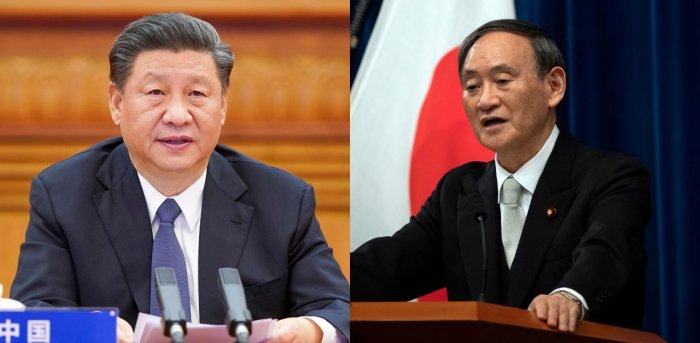Japan’s Prime Minister Yoshihide Suga is taking the Chinese threat head-on. Tokyo has realised how the paper dragon is posing a serious threat to Japanese military installations, and the Suga administration is now getting ready to nip China’s plans in the bud.
As per the latest SCMP report, there has been a suspicious increase in the number of Chinese or South Korean companies purchasing plots of land close to Japanese military installations. Tokyo is now considering restricting such sales. The report further states that as per a government panel, at least 80 plots of land close to Japan’s military installations have been sold to either Chinese or South Korean companies over the past decade.
An anonymous official from Japan’s Cabinet Secretariat has been quoted by SCMP as saying that such transactions appear to be rising. The official added, “Work is underway on the outline of a basic policy and that will be completed before the end of this year.”
It seems that Japan is trying to formulate an action plan to tackle the nuisance being caused by Chinese companies buying land close to Japanese military installations. The Japanese official said, “One of the proposals is for a more complete examination of the reason for the purchase of the land by a foreign company, something that is not specifically required at present.”
Highlighting the suspicious character of such transactions, the official added, “That means that at the moment, we do not have a clear understanding of the buyer’s objective, but we do not believe it can be a coincidence [that the land is close to sensitive military sites].”
China has been targeting some of the most crucial Japanese assets. In late 2016, for instance, a Chinese corporation was looking to buy 2.4 hectares of land on the island of Taketomi, which is located on the southern part of Okinawa archipelago. Notably, the island is located just 170 km from the Senkaku Islands. Today, Japan’s Senkaku Islands have become a point of friction between Tokyo and Beijing. China’s plans were then foiled as the town council bought the residential land and ensured that it doesn’t fall into Chinese hands.
But such sale transactions wouldn’t have been avoided in every case. The Japanese official also explained, “We cannot answer whether the Chinese government is behind some of these deals because it is often difficult to trace a purchase back to the real investor or find a connection to the government because there can be layers of front companies involved.”
The Suga administration has therefore come to realise as to how the paper dragon might be trying to intrude into Japan and gain a foothold near crucial Japanese military installations and assets. However, the Japanese government seems all set to put such Chinese companies in their place and kick them away from defence establishments.








